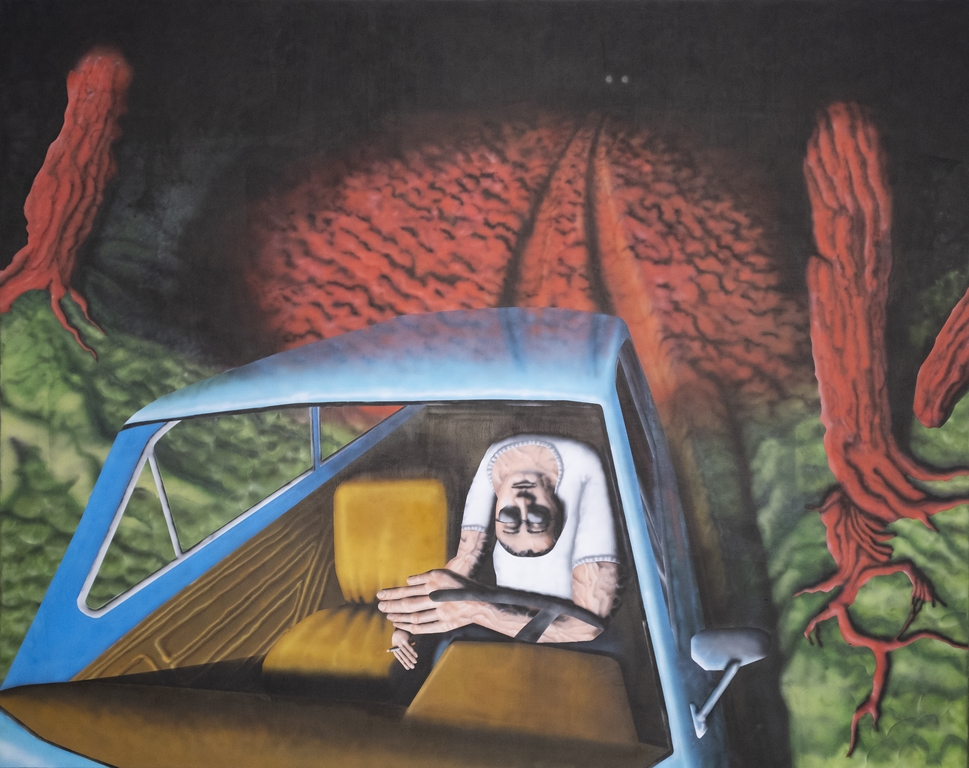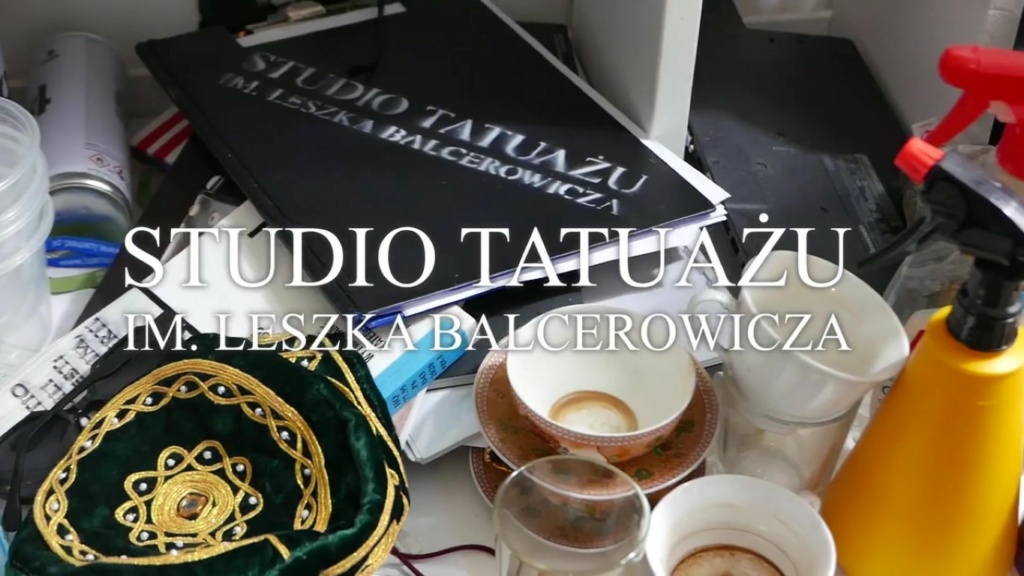Adam
Kozicki
Faculty of Painting
Born 1992. Studies: Faculty of Painting of the Academy of Fine Arts in Warsaw (2016–2021). Fields of artistic activity: painting, (post)artistic activities. Finalist of the 19th Hestia’s Artistic Trip competition (2020). An award (along with other members of the Tęcza Student Society) at the Young Wolves 19 Festival for the design of the gallery IT WILL BE SOME DAY (2019).
too late for late capitalism
Supervisor:
Prof. Jarosław Modzelewski
Studio of Painting No. 3
Self-reflection
As a person born in 1992, I did not experience the political and economic transformation as an individual fully aware of how the end of history is actually put into practice. What I had access to at that time was merely an afterimage of the contemporary reality but, unlike some part of my generation, I did not transform my indirect experience into the blind alley of nostalgia. It was probably not predestined for me due to my descent. The precarious employment condition was quite a different thing.
THE LESZEK BALCEROWICZ TATTOO STUDIO refers directly to my own precarious experience of trying to make a living by practising my profession. Tattooing is an attempt to find a way out of this – both as a source of meagre income, and in consideration of the fact that tattoos are one of the last currently permitted ways of interfering permanently in the body of the individual marked by the stigma of transformation. In contrast to the obligatory “shock therapy”, there is a possibility of refusal.
And the too late for late capitalism cycle is anattempt to transform the afterimages of transformation into a vision radically different from the hurrah-optimism of the Third Polish Republic – a vision full of attempts at mimicry, breaking spines and destabilising the individual. Contrary to the prevailing belief in the triumph of the stable framework of reality, it is a vision of failure, whose victims are caught up in the darkness of denial.
THE LESZEK BALCEROWICZ TATTOO STUDIO
Supervisor:
Prof. Mirosław Bałka
Studio of Spatial Activities
Self-reflection
As a person born in 1992, I did not experience the political and economic transformation as an individual fully aware of how the end of history is actually put into practice. What I had access to at that time was merely an afterimage of the contemporary reality but, unlike some part of my generation, I did not transform my indirect experience into the blind alley of nostalgia. It was probably not predestined for me due to my descent. The precarious employment condition was quite a different thing.
THE LESZEK BALCEROWICZ TATTOO STUDIO refers directly to my own precarious experience of trying to make a living by practising my profession. Tattooing is an attempt to find a way out of this – both as a source of meagre income, and in consideration of the fact that tattoos are one of the last currently permitted ways of interfering permanently in the body of the individual marked by the stigma of transformation. In contrast to the obligatory “shock therapy”, there is a possibility of refusal.
And the too late for late capitalism cycle is anattempt to transform the afterimages of transformation into a vision radically different from the hurrah-optimism of the Third Polish Republic – a vision full of attempts at mimicry, breaking spines and destabilising the individual. Contrary to the prevailing belief in the triumph of the stable framework of reality, it is a vision of failure, whose victims are caught up in the darkness of denial.

